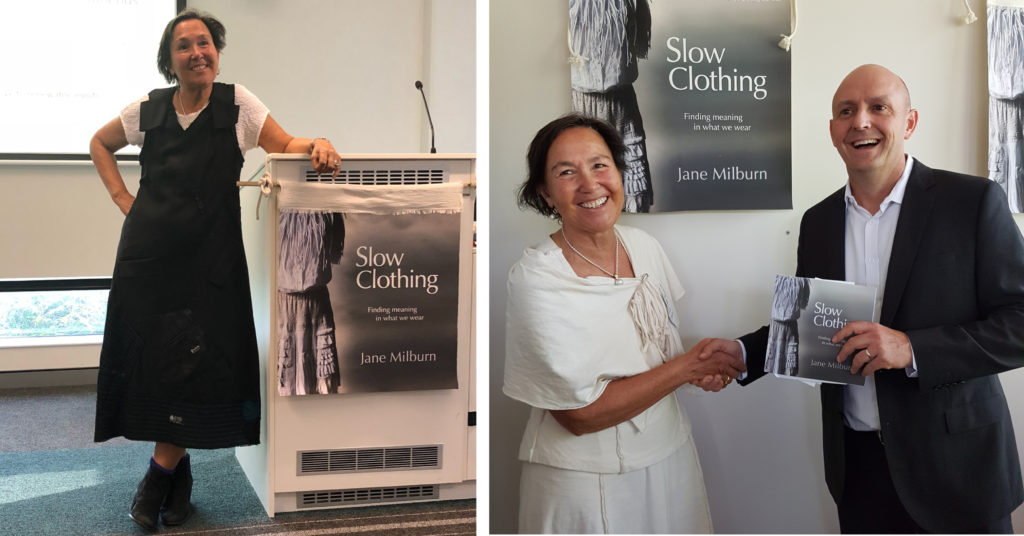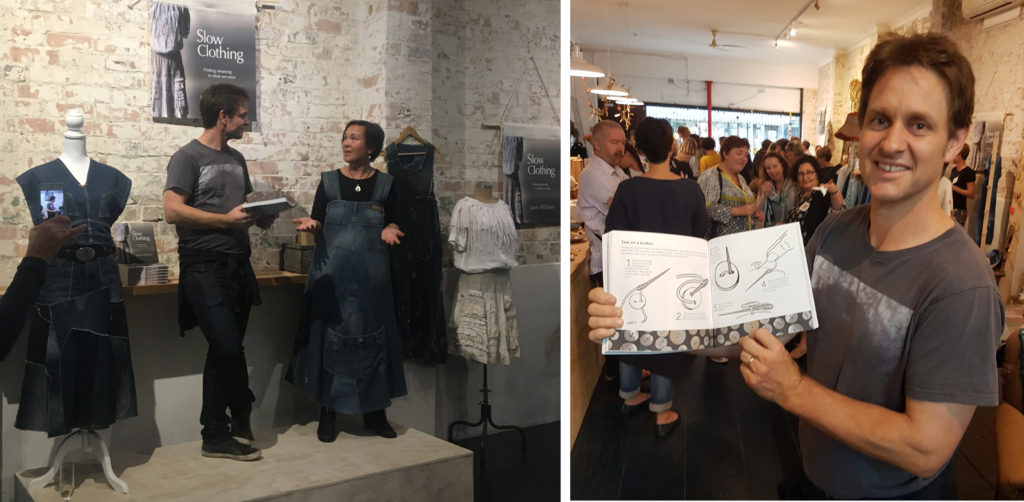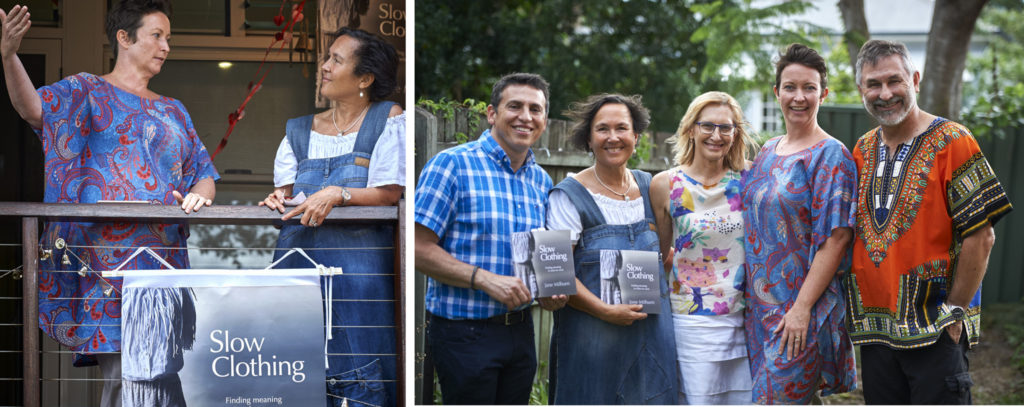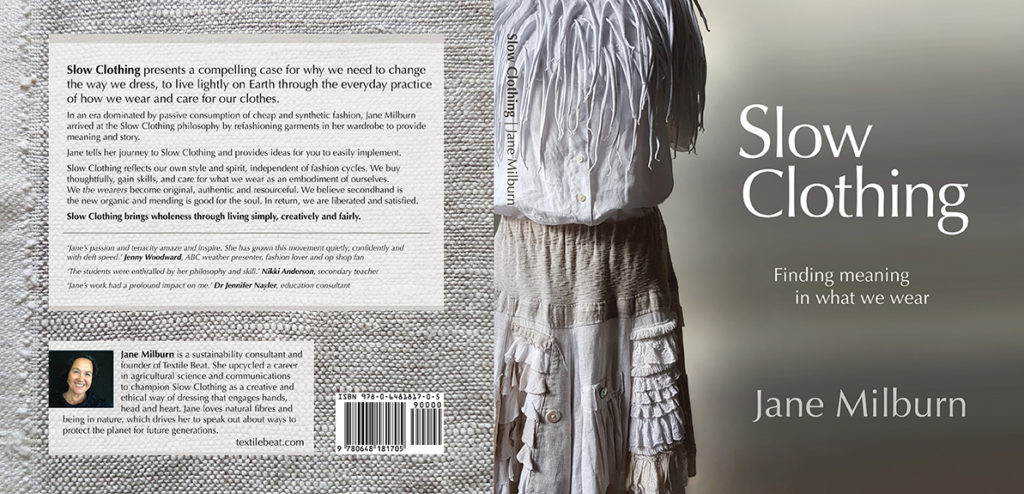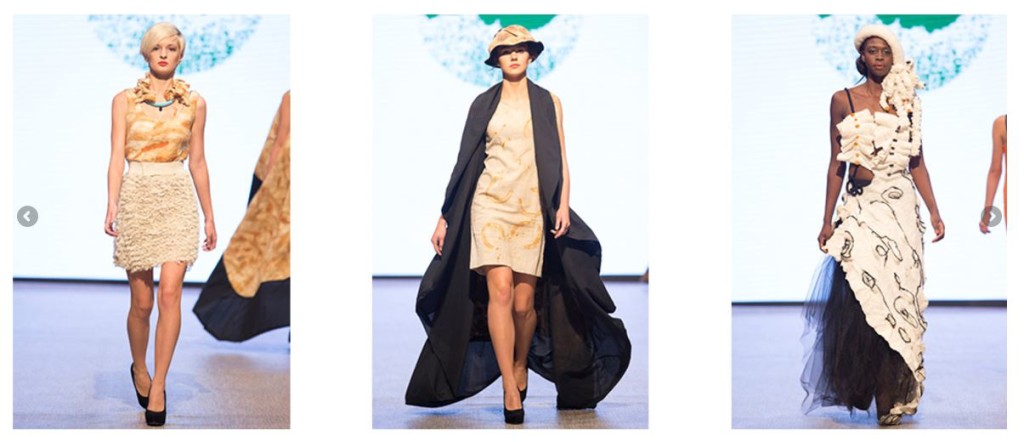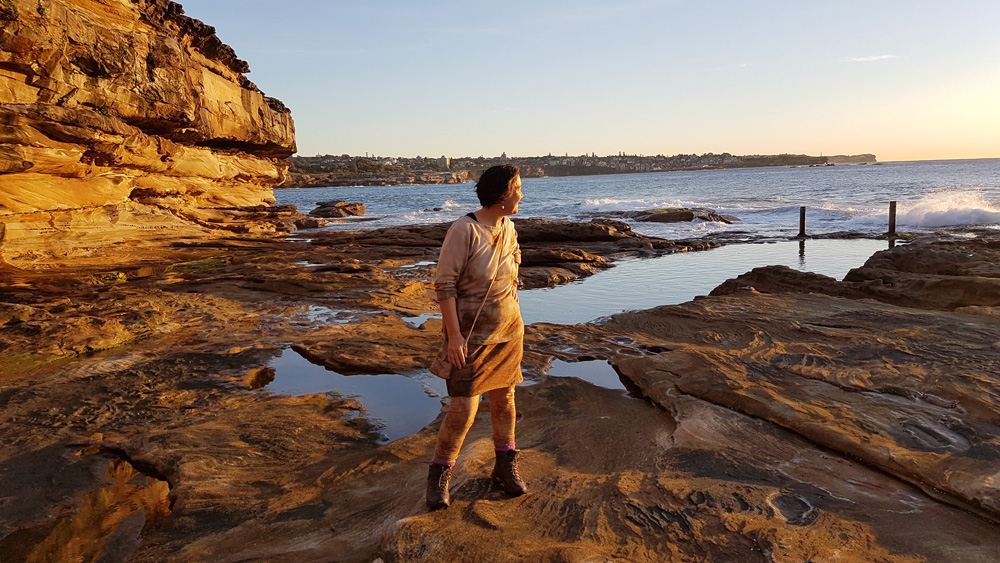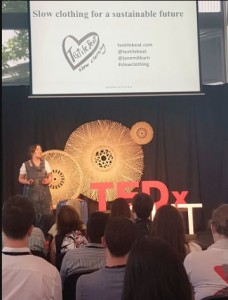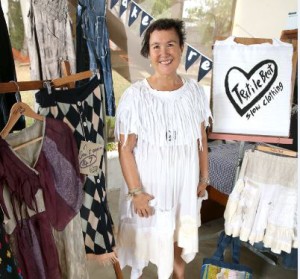We can leave home without eating occasionally but never without dressing!
Dressing is integral to life but what we wear is so often discussed in a fashion context of colour, shape and style. The broader view considers health and wellbeing aspects that respond to fashion waste, pollution, and exploitation issues.
Australian social entrepreneur Jane Milburn, founder of Textile Beat, has spent five years studying the need to transform a culture of fashion excess to a more thoughtful and engaged approach.
Jane’s new book Slow Clothing: finding meaning in what we wear was launched in Canberra at the Australian Rural Leadership Foundation by economist Richard Dennis who, in his own book (Curing Affluenza) proposes buying less stuff as a way to save the world.
